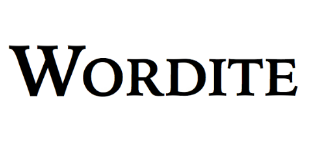than - What does it mean?
'than' hits on the web
You may have been searching for a specific social media @than profile or the tag #than
Definition of 'than'Conjunction
( en-con)
(obsolete|outside|dialects|usually used with for) Because; for.
* 1854 , Reformation series:
- If thou say yes, then puttest thou on Christ (that is, the wisdome of God, the Father) unkunning, unpower, or euil will: for than he could not make his rule so good as an other did his.
* 1668 , William Lawson, A way to get wealth :
- You shall also take the fine earth or mould which is found in the hollow of old Willow trees, rising from the root almost to the middle of the Tree, at least so far as the tree is hollow, for than this, there is no earth or mould finer or richer.
* 1665 , Stillingfleet, Laud, Carwell, A rational account of the grounds of Protestant religion :
- Answer me if you can, any other way, than because the Scriptures, which are infallible, Say so.
* {{quote-magazine|date=2013-07-20|volume=408|issue=8845|magazine=(The Economist)
|title= Old soldiers?
|passage=Whether modern, industrial man is less or more warlike than' his hunter-gatherer ancestors is impossible to determine. The machine gun is so much more lethal ' than the bow and arrow that comparisons are meaningless.}}
-
Preposition
( en-prep)
introduces a comparison, and is associated with comparatives, and with words such as more'', ''less'', and ''fewer . Typically, it seeks to measure the force of an adjective or similar description between two predicates.
- Patients diagnosed more recently are probably surviving an average of longer than two years.
Usage notes
, who wrote ''No man had ever more discernment than him, in finding out the ridiculous.''). ''Than functions as both conjunction and preposition; when it is used as a conjunction, it governs the nominative case, and when a preposition, the oblique case. To determine the case of a pronoun following "than", a writer can look to implied words and determine how they would relate to the pronoun.
Examples :
* You are a better swimmer than she.
** represents You are a better swimmer than she is.
** therefore You are a better swimmer than her is a solecism.
* They like you more than her.
** represents They like you more than they like her.
** therefore They like you more than she'' is a solecism, if it attempts to represent the previous sentence. It may be correct, however, if it represents ''They like you more than she likes you.
Some prescriptionists insist that whom'' must follow ''than'' (not ''who''); although according to the above rule, ''who would be the "correct" form. Critics of this often cite this mandatory exception as evidence that the prescriptionist rule is logically erroneous, in addition to it being inconsistent with well-established usage.
Adverb
(-)
(now|chiefly|dialectal) At that time; then.
Statistics
*
Similar to 'than'ten, thin, tan, tin, then, teen, town, ton, tun, twain, twin, toon, thon, toyon, tauon, tyiyn, tyyn, tian, tween, tiyn, taan, tyan, tain, tawn, thein, thoan, tiyin
|
